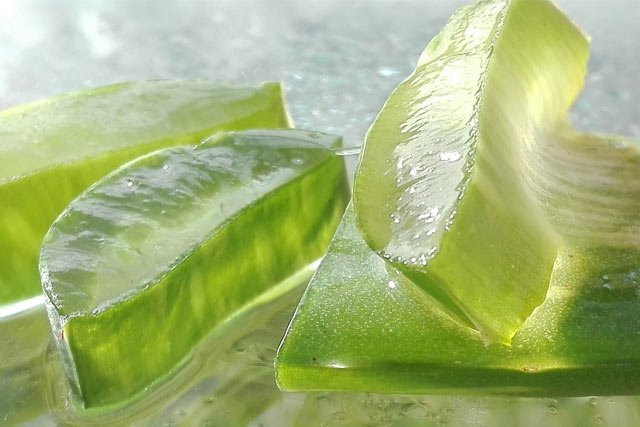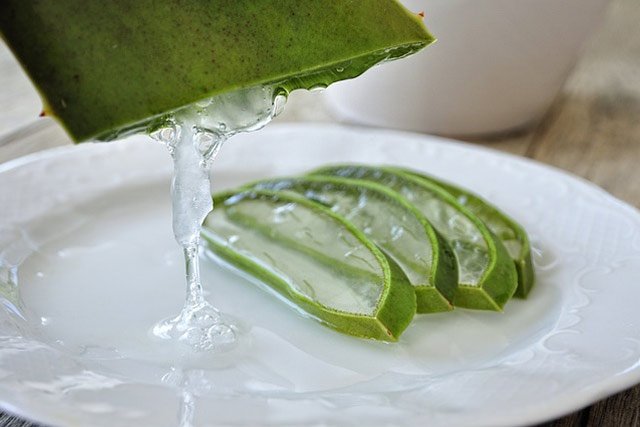
In the realm of natural skincare, aloe vera gel stands tall as a true hero. Its versatile properties can soothe sunburns, tackle acne, and even nourish your scalp. However, there’s a catch: aloe vera gel has a notoriously short shelf life. Being an all-natural, preservative-free ingredient, pure aloe vera gel can be a tad tricky to keep fresh.
Once extracted from the succulent leaves, aloe vera’s flesh is like a ticking freshness time bomb. It demands immediate use or proper storage in the refrigerator. Left unattended, it can turn sour within a mere 24 hours at room temperature. In either scenario, it’s imperative to discard aloe vera at the first hint of discoloration, strange odors, or mold.
But worry not! We’re here to share some expert storage tips to help you maximize the lifespan of this skincare and haircare powerhouse. Let’s dive deep into the world of aloe vera preservation so you can have your aloe—and use it, too.
1. The Cool Keeper: Always Refrigerate
Humidity and temperature are two pivotal factors influencing the freshness of aloe vera. If there’s only one thing you remember, it’s this: always (yes, always) store your aloe vera gel in the refrigerator. Despite thriving in warm and tropical climates, once detached from its mother plant, aloe vera enters a race against time. Its natural enzymes and the presence of normal bacteria kickstart a decomposition process, compromising its active compounds. Refrigeration helps slow down this process, allowing the gel to remain fresh for a solid five to seven days.
2. The Airtight Guardian
Just like temperature and humidity, oxygen is no friend to aloe vera gel. Exposure to oxygen can invite harmful bacteria and accelerate rancidity. To combat this, you must employ an airtight container, similar to how you’d preserve leftover food. Opt for a bottle or jar with a secure screw-on top, ensuring a 100% seal.
3. Shielding from Light Damage
While most of your aloe vera gel’s life will be spent inside the refrigerator, protecting it from light is a smart move. Store it in an amber bottle or jar, which effectively absorbs UV radiation and safeguards the gel’s precious compounds. Additionally, always use a clean container to minimize the risk of bacterial contamination. Wash it meticulously with warm, soapy water and allow it to dry completely before reuse.
4. Freeze for Extended Shelf Life
When you find yourself with more aloe gel than you can use within a week, consider freezing it. This not only prolongs its shelf life but also offers a soothing experience for sunburn relief. To freeze the gel, pour it into an ice cube tray and place it in the freezer. This method is far more convenient than freezing a large portion of aloe gel and struggling to cut it into usable portions later. For added convenience, use a flexible silicone tray to easily pop out the cubes.
Once frozen, transfer the cubes into a sealable bag and store them in the freezer for up to a year. In the spirit of sustainability, opt for a freezer-safe reusable bag if possible. You can label and date the bag using a strip of masking tape. When it’s time to use the gel, allow a cube to thaw at room temperature until it reaches a spreadable consistency.
5. Cubes for Convenience
If you’ve recently acquired or harvested an aloe leaf, you have the option to cube and freeze the flesh instead of transforming it into a pourable gel. Here’s a step-by-step guide:
- Wash the leaf thoroughly to eliminate surface bacteria.
- Place it upright in a container for eight to 24 hours to drain the sap.
- Trim away the jagged edges and delicately slide a knife under the top layer of skin.
- Use a spoon to scoop out the flesh in one cohesive piece gently.
- Cut the flesh into 1-inch cubes and transfer them to a baking sheet lined with parchment paper.
- Freeze until solid, then place them in a freezer-safe bag.
Read More: Aloe Vera is Used as a Natural Treatment for Cradle Cap in Toddlers
Does Aloe Vera Gel Expire?

Absolutely! Fresh and all-natural aloe vera gel has a shelf life of about one to two days at room temperature, roughly a week when stored in the refrigerator, and up to a year when frozen.
Freshly harvested aloe vera gel is entirely preservative-free, and while preservatives often get a bad rap in the beauty industry, they play a vital role in prolonging shelf life. Without them, natural ingredients can only be utilized when freshly harvested. So, it’s crucial to exercise caution and not hold onto aloe vera gel for too long. Using spoiled products can be detrimental, so be vigilant and discard any gel exhibiting discoloration or a foul odor.
If the idea of tossing your fresh gel every week (at most) seems like too much work, perhaps the DIY route isn’t your best option. While harvesting aloe at home has its benefits, such as cost-effectiveness and freshness, store-bought gels boast a longer shelf life. These commercial products are fortified with preservatives, which grant them a shelf life of approximately two years.
In Summary
Fresh and all-natural aloe vera gel is a treasure that demands vigilant preservation. By following these aloe vera storage tips, you can make the most out of this wonderfully cooling gel. Remember to keep an eye out for any signs of spoilage, such as changes in color or unpleasant odors. And if you ever wonder when does aloe vera gel expire, it’s better to toss it. Your skin will thank you, and it will truly sing praises after indulging in the benefits of aloe vera masks.
Frequently Asked Questions:
How should I store fresh aloe vera?
Store fresh aloe vera in the refrigerator.
What are the best methods to store aloe vera gel for an extended period?
The best methods to store aloe vera gel for an extended period include refrigeration, freezing, and using airtight containers.








